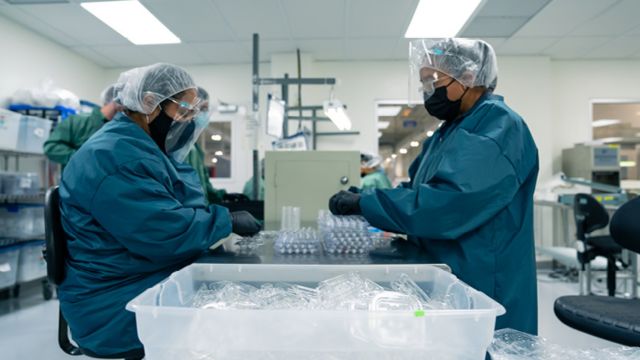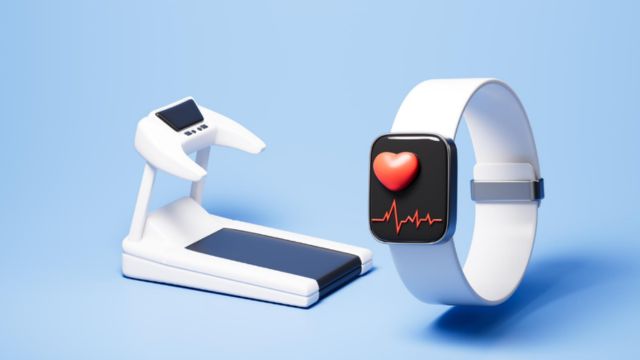The fast-paced healthcare sector of today demands ever-growing medical supplies. Whether for homes, clinics, or hospitals, the demand for premium, dependable medical products is critical. Many are thinking about outsourcing their medical supply needs as healthcare providers want to keep operational effectiveness. Still, is medical supply outsourcing the best option? Let’s look at the advantages, drawbacks, and factors to be taken into account while outsourcing your medical supply needs.
What Is Medical Supply Outsourcing?
Outsourcing is the process of contracting an outside organisation to manage specific facets of your company operations—in this example, purchase, storage, and distribution of medical supplies. Often with additional logistical support, healthcare corporations choose specialised companies to acquire and supply medical goods at reasonable rates instead of handling the logistics and in-house buying.
The Benefits of Medical Supply Outsourcing
- Cost Efficiency
Potential cost reductions are one of the main reasons medical supply outsourced by healthcare companies. Healthcare facilities can usually benefit from bulk buying power, negotiated pricing, and less overhead costs related with internal inventory control by working with an outside supplier. These savings can be used for sophisticated medical technology investments, service expansion, or patient care improvement. - Access to a Broader Product Range
Outsourcing lets medical professionals access a large range of products without having to make continuous inventory maintenance investments. From simple bandages and gloves to highly specialised surgical tools and diagnostic equipment, outsourcing partners usually have an extensive product catalogue, which helps healthcare organisations to effectively satisfy their demands. - Streamlined Operations
Internal medical supply management can be time-consuming work. Healthcare providers can free up internal resources by outsourcing that can be focused on basic tasks including staff training and patient care. By streamlining the management of several suppliers and inventory systems, this simplified method helps healthcare teams to concentrate on what counts most: providing patients with high-quality treatment. - Expertise and Reliability
Companies specialising in medical supply outsourcing focus in their speciality. Their knowledge of inventory control, regulatory requirements, and timely delivery guarantees guarantees that medical professionals get dependable goods compliant with industry guidelines. By certifying and following worldwide standards including ISO and FDA rules, many outsourcing firms reduce the danger of defective or non-compliant items finding their way onto the supply chain. - Improved Focus on Core Competencies
Outsourcing lets medical companies concentrate on their main goal—offering first-rate patient treatment. Eliminating the responsibility for procurement, storage, and management of medical supplies frees staff members to devote more time to raising patient satisfaction and clinical results. Outsourcing partners also typically handle the logistics, therefore simplifying supply chain management and enabling healthcare companies to scale activities as required.
The Drawbacks of Medical Supply Outsourcing

Although outsourcing medical supplies has many benefits, some possible negatives should be taken under account.
- Loss of Control
Healthcare companies who outsource could lose some control over the procurement and delivery systems. Problems with product quality or delays in shipping might have an impact on the whole supply chain and, hence, patient treatment. Clearly defining objectives, deadlines, and quality criteria with outsourcing partners is absolutely vital. - Quality Assurance Risks
While many outsourcing firms have a good reputation, there is always chance of getting inferior goods. One difficulty is ensuring the outsourced provider upholds the same high standards as an internal operation. To thereby minimise quality-related concerns, choosing a reliable and authorised provider is absolutely crucial. - Potential for Hidden Costs
Although outsourcing can save money over time, there could be unstated expenses. Outsourcing may prove less affordable than projected depending on delivery expenses, unanticipated fees, or expenditures related to supplier switching. One should have a thorough contract outlining all expenses and involved services. - Dependence on External Partners
Using a third-party company for medical supplies means that any disturbance in their business will immediately affect your own. Whether it’s a supply chain problem, failing quality control, or an outside crisis, outsourcing generates a reliance that could cause problems should the partner neglect their responsibilities.
Is Medical Supply Outsourcing the Right Choice for Your Organization?
Choosing whether outsourcing is the best option mostly relies on the special requirements of your healthcare company. Outsourcing could be a great option for your company seeking efficiency, cost reductions, and access to a larger spectrum of premium medical supplies. You might wish to reevaluate or investigate hybrid solutions, though, if your top focus is keeping direct control over every element of the supply chain or if you have questions about the dependability of outside vendors.
Healthcare companies should thoroughly analyse possible outsourcing partners, evaluate their capabilities, check their contract conditions, and make sure their quality standards match your own before deciding. Through weighing the advantages and disadvantages of medical supply outsourcing, healthcare providers can make wise decisions that eventually help patient care as well as their own operations.
Stay updated with the latest in medical supplies, clinical engineering innovations, and industry trends. At J&J Supplies, we are committed to providing you with the best resources and information to optimize your healthcare operations. Whether you’re exploring medical supply options or need insights on clinical engineering, we’ve got you covered! Visit us today for more information and expert advice.
FAQs
What is medical supply outsourcing?
Medical supply outsourcing involves partnering with an external company to manage the procurement, storage, and distribution of medical supplies. This approach helps healthcare organizations save time, reduce costs, and streamline operations.
What are the benefits of outsourcing medical supplies?
The primary benefits include cost savings, access to a wider product range, streamlined operations, and expertise from specialized outsourcing partners. It allows healthcare organizations to focus on core services such as patient care.
Are there any risks associated with outsourcing medical supplies?
Yes, there are potential risks such as loss of control, quality assurance issues, hidden costs, and dependency on external partners. It’s important to carefully select reliable suppliers and outline clear expectations in contracts.
How can I ensure the quality of outsourced medical supplies?
To ensure quality, choose outsourcing partners with certifications (e.g., ISO, FDA compliance), conduct regular quality checks, and establish clear quality standards in your contracts. Always have backup options in place.
Is outsourcing medical supplies cost-effective?
Outsourcing can be cost-effective if done properly, offering bulk purchasing discounts and reducing overhead costs. However, hidden costs may arise, so it’s important to fully understand all associated fees before making the decision.








